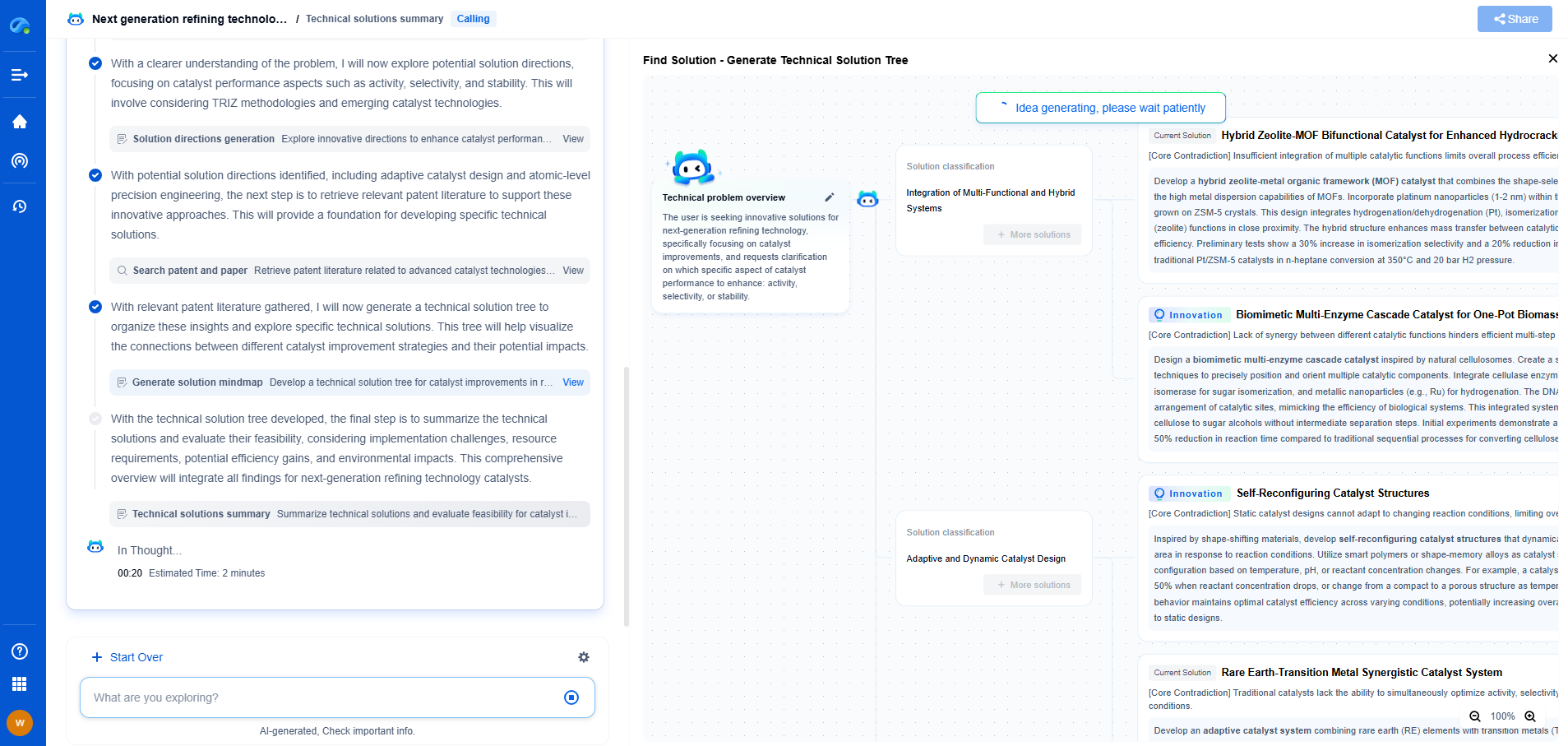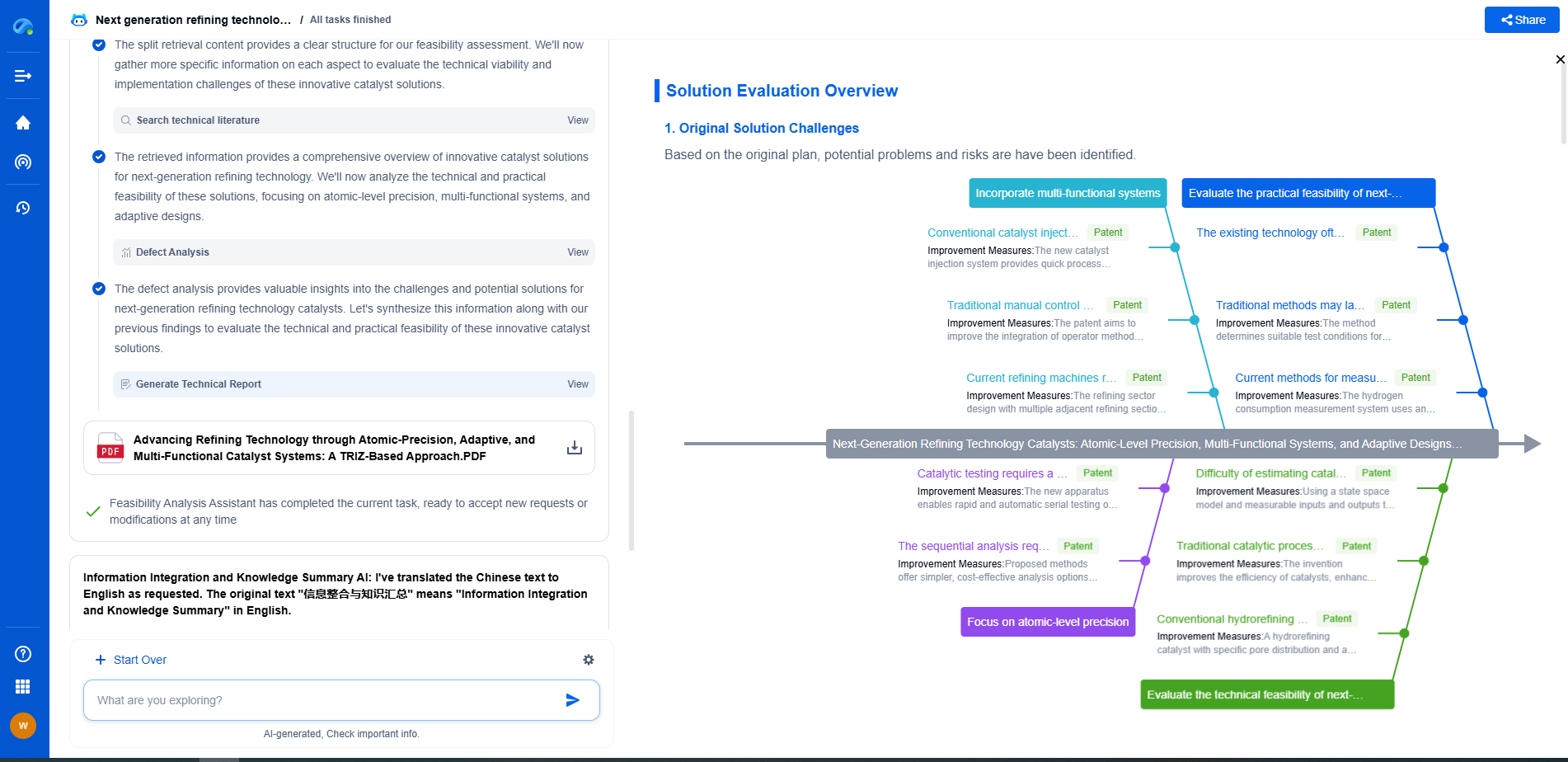What materials are used in drill bit construction?
JUN 20, 2025 |
Drill bits are essential tools in various industries, from construction and woodworking to metalworking and mining. Understanding the materials used in their construction is crucial for selecting the right bit for a specific task. The materials influence the drill bit's durability, effectiveness, and suitability for different applications.
**High-Speed Steel (HSS)**
High-speed steel is one of the most common materials used in drill bit construction. HSS drill bits are known for their versatility and affordability, making them a popular choice for general-purpose drilling. They can cut through wood, plastic, and soft metals with ease. The defining characteristic of HSS is its ability to withstand high temperatures without losing its hardness, which makes it suitable for high-speed operations. However, they may not be ideal for drilling harder materials like stainless steel or concrete.
**Cobalt Steel Alloys**
For more demanding applications, cobalt steel alloy drill bits offer enhanced performance. Adding cobalt to the steel increases its strength and heat resistance, making these bits ideal for drilling hard metals such as stainless steel, titanium, and cast iron. Cobalt drill bits maintain their edge longer than HSS, even in extreme conditions. They are typically more expensive but provide superior durability, which can be cost-effective in the long run for heavy-duty tasks.
**Carbide-Tipped Drill Bits**
Carbide is a material renowned for its hardness and wear resistance, making carbide-tipped drill bits perfect for drilling through tough materials like concrete, masonry, and tiles. These bits feature a tip made of carbide bonded to a steel shank, combining the toughness of steel with the cutting power of carbide. While carbide-tipped bits are more brittle and can be prone to chipping, their ability to maintain sharpness makes them indispensable in construction and tile work.
**Solid Carbide Drill Bits**
For the most demanding drilling tasks, solid carbide drill bits are the go-to choice. Unlike carbide-tipped bits, these are made entirely from tungsten carbide, offering unparalleled hardness and heat resistance. Solid carbide bits are used in high-precision environments, such as CNC machining, where accuracy and efficiency are paramount. However, their brittleness necessitates careful handling and operation to avoid chipping or breakage.
**Diamond Drill Bits**
Diamond drill bits are specialized tools designed for drilling through extremely hard materials like glass, ceramics, and stone. The drill bit is coated with tiny diamond particles, providing unmatched cutting ability and durability. These bits work by grinding rather than cutting, which prevents cracking and ensures smooth edges. While diamond drill bits are among the most expensive options, their precision and effectiveness in specialized applications make them invaluable.
**Factors Influencing Material Choice**
When choosing a drill bit, several factors should be considered. The material of the workpiece is the most critical factor, dictating the type of drill bit needed to achieve the best results. The speed and duration of the drilling operation also influence the choice, as different materials offer varying levels of heat resistance and durability. Cost considerations are important, especially for large projects where multiple bits might be required. Ultimately, balancing performance, durability, and cost will guide you to the best drill bit material for your needs.
Understanding the materials used in drill bit construction provides insight into their functionality and suitability for various tasks. Whether you are a DIY enthusiast or a professional tradesperson, selecting the right drill bit material can significantly impact the efficiency and quality of your work. By appreciating the strengths and limitations of each material, you can make informed decisions that align with your drilling requirements.
Navigating the Complexities of Drilling Innovation? Let AI Do the Heavy Lifting
In an industry where subsurface conditions, materials science, and drilling dynamics evolve rapidly, staying ahead of technical innovation and protecting your intellectual property can be overwhelming.
Patsnap Eureka, our cutting-edge AI assistant, is built for R&D and IP professionals in high-tech industries like drilling technologies. Whether you're optimizing rotary steerable systems, evaluating high-temperature materials, or exploring next-gen automation in directional drilling, Eureka enables real-time analysis of the latest patents, technology landscapes, and competitive movements—all from one intelligent, intuitive platform.
Ready to accelerate your development cycle and make strategic decisions with confidence? Explore Patsnap Eureka today—where smart drilling starts with smarter insights.
- R&D
- Intellectual Property
- Life Sciences
- Materials
- Tech Scout
- Unparalleled Data Quality
- Higher Quality Content
- 60% Fewer Hallucinations
Browse by: Latest US Patents, China's latest patents, Technical Efficacy Thesaurus, Application Domain, Technology Topic, Popular Technical Reports.
© 2025 PatSnap. All rights reserved.Legal|Privacy policy|Modern Slavery Act Transparency Statement|Sitemap|About US| Contact US: help@patsnap.com

